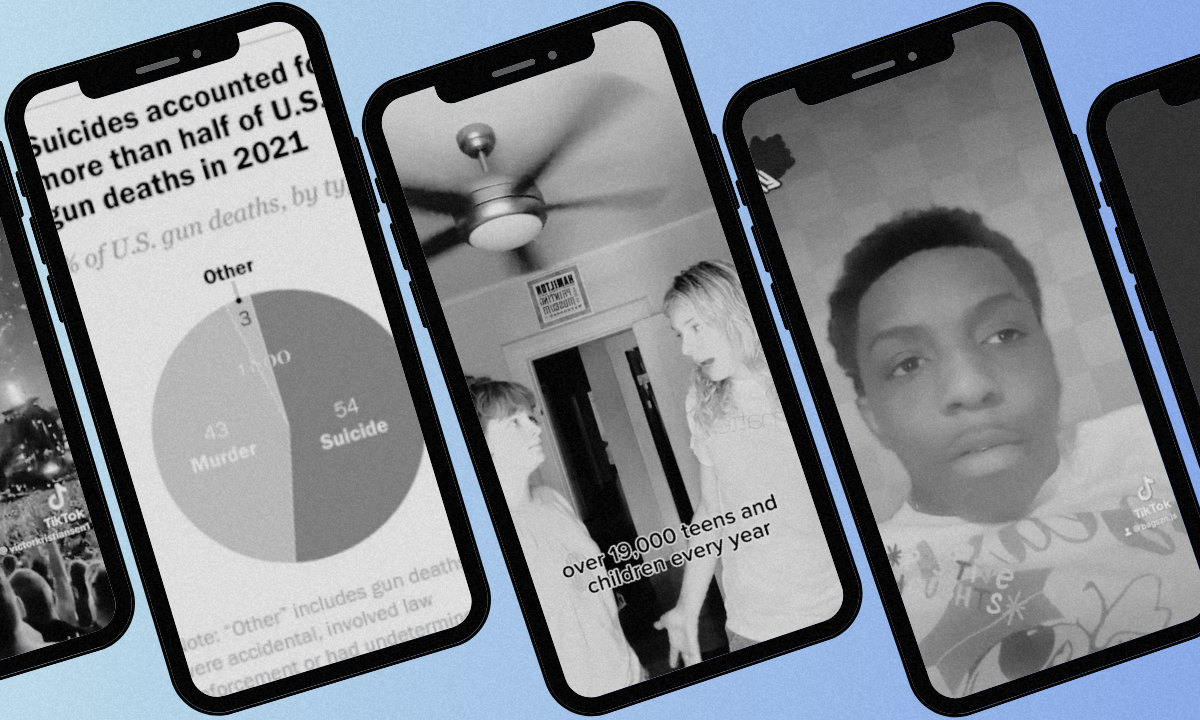Video Campaign Gives Chicago Teens a Voice against Gun Violence
Vinik: This summer, 350 students helped spread the word on social media to their peers that being armed doesn't make you safe.

Get stories like these delivered straight to your inbox. Sign up for The 74 Newsletter
Hundreds of Chicago teens are starting the school year with new knowledge of what’s fueling gun violence in their communities and how their voices can make a difference in the fight to stop it.
Across the country, young people are disproportionately impacted by gun violence, which is now the leading killer of kids and teens in the U.S. Fear and anxiety are driving many to believe that they would be safer armed with a gun, and as a result, many more teens are carrying guns than did two decades ago. But these young people also know that this arms race is not making their communities safer — it’s contributing to more deaths and injuries.
Within that contradiction lies hope for a safer future, and teens can lead the way, because the decision to pick up a gun is not inevitable. The narrative that only a gun will make a young person safer is false and can be changed.
This summer, Project Unloaded partnered with Chicago Public Schools and After School Matters to engage some 350 teens, ages 14 to 18, in communities heavily impacted by gun violence. We shared the facts on gun risks with the students and challenged them to create social media campaigns that could help spread the word to their peers that having a gun is not the path to safety.
Initially, many of the teens expressed skepticism. They pushed back on the idea of building campaigns to take on gun violence because they didn’t believe their voices mattered, or that gun violence could be stopped. But as they learned more about the myths that prompt young people to carry firearms, and as we showed them how teen voices had made a difference on other public health and social justice issues, their tone shifted.
Over our six-week program with Chicago Public Schools, students heard from experts on gun violence, met with experts from major ad agencies and learned about how teens can shift culture. They practiced having conversations about the risks of using guns with their peers and brainstormed effective ways into those important dialogues. Finally, the teens created their own social media content to discourage gun use and built strategies for large-scale campaigns that could spread the fact-based message that having a firearm makes gun violence more likely, not less.
We challenged program participants to create social media campaigns for a simple reason: Teens are best reached through their phones and peers. It’s a strategy we’ve used at Project Unloaded since our launch in 2021. In that short time, our signature campaign to spread the message that young people are SNUG — Safer Not Using Guns — has reached more than 3 million teens on platforms like TikTok and Snapchat. This summer alone, more than 120,000 young people clicked through social media content to view our campaign website, where we share more information about the risks of using guns. When teens know the facts, many shift away from wanting a gun.
Similarly, by the end of their six weeks with us, many of the Chicago students came to see how their voices and ideas could make a difference. The program ended with a pitch contest in front of a panel of judges and hundreds of their peers. The winning team’s campaign idea had a powerful, simple slogan: Guns don’t give you power.
Teens want power. And when it comes to social change, they have a lot of it. Consider that Claudette Colvin was only 15 when she refused to give up her seat to a white passenger on a Montgomery, Alabama, bus — nine months before Rosa Parks. Her decision snowballed into a movement. Years later, as teens learned about how tobacco companies’ marketing to young people was driving lung cancer rates, they stopped smoking and shifted the culture of cigarettes from cool to uncool in a generation. Two decades ago, nearly a quarter of teens smoked cigarettes. Today, less than 5% of teens smoke.
History is full of examples like these, where teens provide the spark for major societal shifts. Today, their savvy use of social media can accelerate the flame that makes narrative and culture change happen. And narrative change campaigns can alter the world for the better.
Teens know that guns are readily available, and that’s not changing anytime soon. But young people are also clear-eyed about their vision for the future. In a second summer program with After School Matters, we asked young people to create social content and art projects to share how guns impact their communities. In one art project, a student wrote, “Guns create a feeling of violence and fear. Without them, our communities could be ‘communities’ again.”
Teens know how to build safer communities. It’s up to adults to listen to them and amplify their voices, because guns don’t give you power. Teens have all the power they need to shift the narrative and finally slow the nation’s gun violence epidemic.
Get stories like these delivered straight to your inbox. Sign up for The 74 Newsletter

;)
